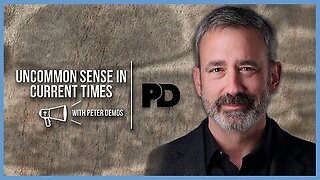Premium Only Content

Akbar Birbal | Funny Stories | Season 1 | Episode 10 | Hindi | Milk of an OX
Akbar (Hindustani: [əkbər]; 14 October 1542 -- 27 October 1605), known as Akbar the Great, was Mughal Emperor from 1556 until his death. He was the third and greatest ruler of the Mughal Dynasty in India. Akbar succeeded his father, Humayun, under a regent, Bairam Khan, who helped the young emperor expand and consolidate Mughal domains in India. A strong personality and a successful general, Akbar gradually enlarged the Mughal Empire to include nearly all of the Indian Subcontinent north of the Godavari river. His power and influence, however, extended over the entire country because of Mughal military, political, cultural, and economic dominance. To unify the vast Mughal state, Akbar established a centralised system of administration throughout his empire and adopted a policy of conciliating conquered rulers through marriage and diplomacy. In order to preserve peace and order in a religiously and culturally diverse empire, he adopted policies that won him the support of his non-Muslim subjects. Eschewing tribal bonds and Islamic state identity, Akbar strived to unite far-flung lands of his realm through loyalty, expressed through a Persianised culture, to himself as an emperor who had near-divine status.
Mughal India developed a strong and stable economy, leading to commercial expansion and greater patronage of culture. Akbar himself was a great patron of art and culture. He was fond of literature, and created a library of over 24,000 volumes written in Sanskrit, Hindustani, Persian, Greek, Latin, Arabic and Kashmiri, staffed by many scholars, translators, artists, calligraphers, scribes, bookbinders and readers. Holy men of many faiths, poets, architects and artisans adorned his court from all over the world for study and discussion. Akbar's courts at Delhi, Agra, and Fatehpur Sikri became centers of the arts, letters, and learning. Perso-Islamic culture began to merge and blend with indigenous Indian elements, and a distinct Indo-Persian culture emerged characterised by Mughal style arts, painting, and architecture. Disillusioned with orthodox Islam and perhaps hoping to bring about religious unity within his empire, Akbar promulgated Din-i-Ilahi, a syncretic creed derived from Islam, Hinduism, Zoroastrianism, and Christianity. A simple, monotheistic cult, tolerant in outlook, it centered on Akbar as a prophet, for which he drew the ire of the ulema and orthodox Muslims.
Birbal (Hindustani: [birbəl]; born Mahesh Das; 1528--1586) or more accurately Rajah Birbar, was a Hindu advisor in the court of the Mughal emperor Akbar during his rule in India and is mostly remembered in folk tales, which focus on his wit. He belonged to the Brahmin class and was appointed by the emperor as a poet and singer, later formed a close association with him, becoming an important advisor and soon being sent on military expeditions despite having no previous background. In 1586, the emperor sent an army led by Birbal to crush an unrest in the north-west Indian subcontinent, which failed tragically when he was killed along with many troops in an ambush by the rebel tribe. This was one of biggest military setbacks during his reign and Birbal's death is said to have caused much grief to the emperor.
Near the end of the emperor's reign, local folk tales began to emerge involving his interactions with Birbal, in which Birbal was portrayed as extremely clever and witty. As the tales gained popularity in India, he became even more of a legendary figure. He was mostly shown as being younger than the emperor and religious while being surrounded by envious Muslim courtiers; these tales involve him outsmarting them and sometimes even the emperor, using only his intelligence and cunning, often with giving witty and humorous responses and impressing the emperor. Some stories are told in versions containing a different set of characters from other Indian folklore. By the twentieth century onwards, plays, films and books based on these folk tales were made, some of these tales are in children's comics and textbooks.
No evidence is present that Birbal, like how he is shown in the folk tales, influenced the emperor and his beliefs, decisions and policies mainly by his witticism. It was Akbar's affection for him, his religious tolerance and social liberalism that was the cause of his success in the court and Birbal was a supporter of his religious policy.
-
 28:30
28:30
WhatsUp Augusta
2 years ago $0.05 earnedWhatsUp, Augusta. Season 2. Episode 7
71 -
 4:20:21
4:20:21
Nerdrotic
15 hours ago $68.22 earnedDaradevil Born Again, Comics Industry CRASH, Neu-Hollywood REBUILD | Friday Night Tights #337
215K45 -
 1:32:34
1:32:34
Glenn Greenwald
11 hours agoThe Future of Gaza With Abubaker Abed; Journalist Sam Husseini On His Physical Expulsion From Blinken’s Briefing & Biden’s Gaza Legacy | System Update #391
108K83 -
 1:34:48
1:34:48
Roseanne Barr
14 hours ago $21.14 earnedWe are so F*cking Punk Rock! with Drea de Matteo | The Roseanne Barr Podcast #83
84.7K57 -
 1:08:20
1:08:20
Man in America
15 hours ago🇨🇳 RedNote: A CCP Trojan Horse Deceiving Americans? w/ Levi Browde
41.4K38 -
 3:55:11
3:55:11
I_Came_With_Fire_Podcast
17 hours agoTrump SABOTAGE, LA FIRE CHIEF SUED, and BIDEN’S LAST F-U!
27.1K8 -
 2:59:47
2:59:47
Joker Effect
9 hours agoUkraine in a video game? Hardest thing I have done. S.T.A.L.K.E.R.2 Heart of Chornobyl,
97.1K7 -
 1:15:22
1:15:22
Flyover Conservatives
1 day agoEczema, Brain Fog, B.O., and Gas… Eating Steak and Butter Creates Ultimate Health Hack - Bella, Steak and Butter Gal | FOC Show
72.3K6 -
 51:58
51:58
PMG
13 hours ago $2.92 earned"Can the Government Learn from Elon Musk’s 70% Labor Cut? A Deep Dive into Inefficient Agencies"
51.4K1 -
 6:39:15
6:39:15
Amish Zaku
12 hours agoRumble Spartans #10 - New Year New Maps
44.1K3